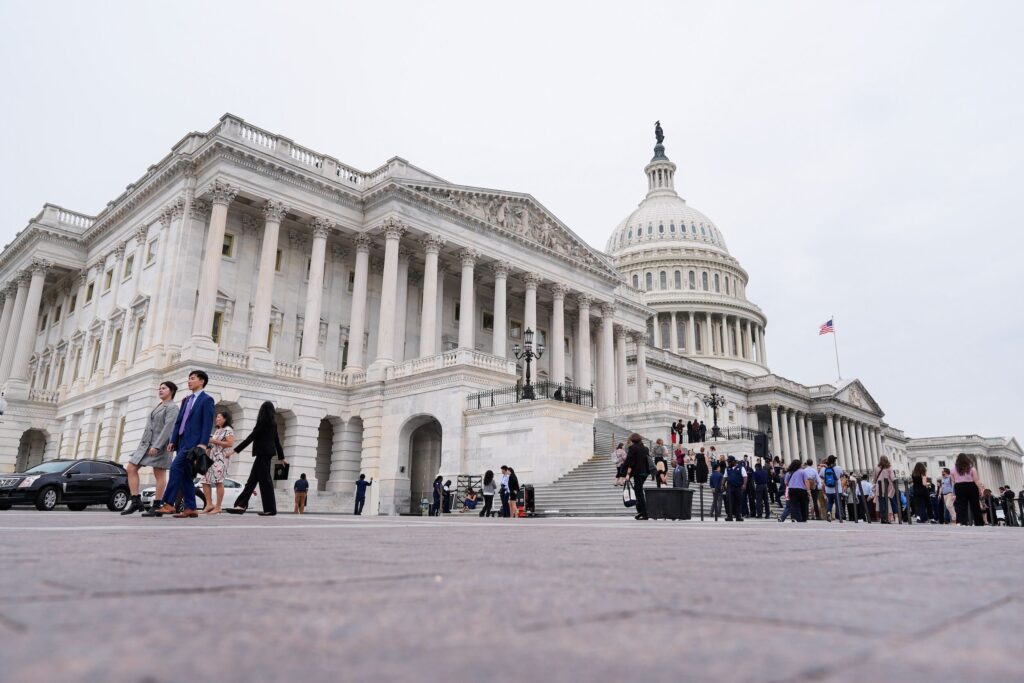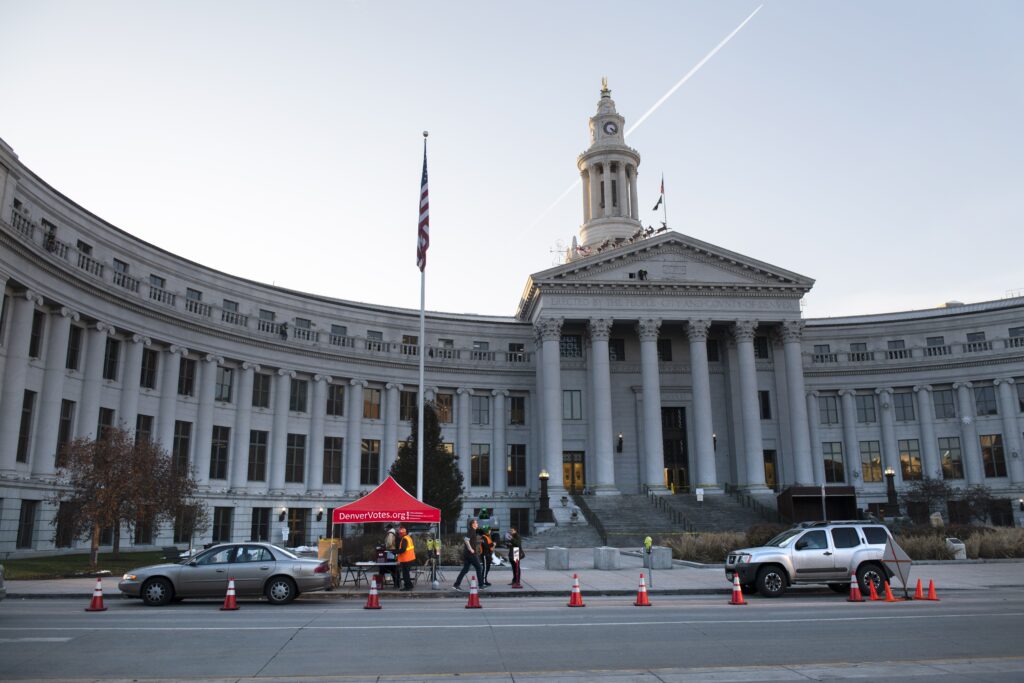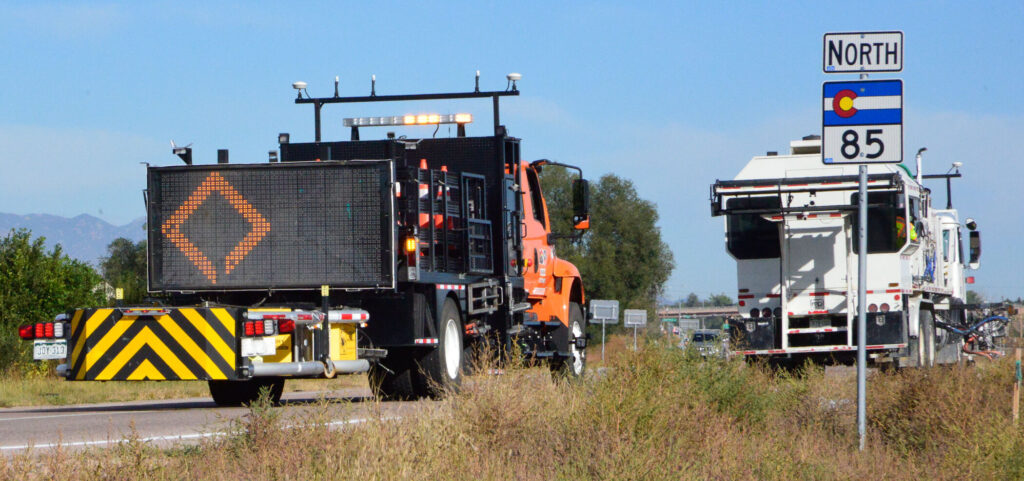Marble ethics violations now in the hands of Colorado state commission
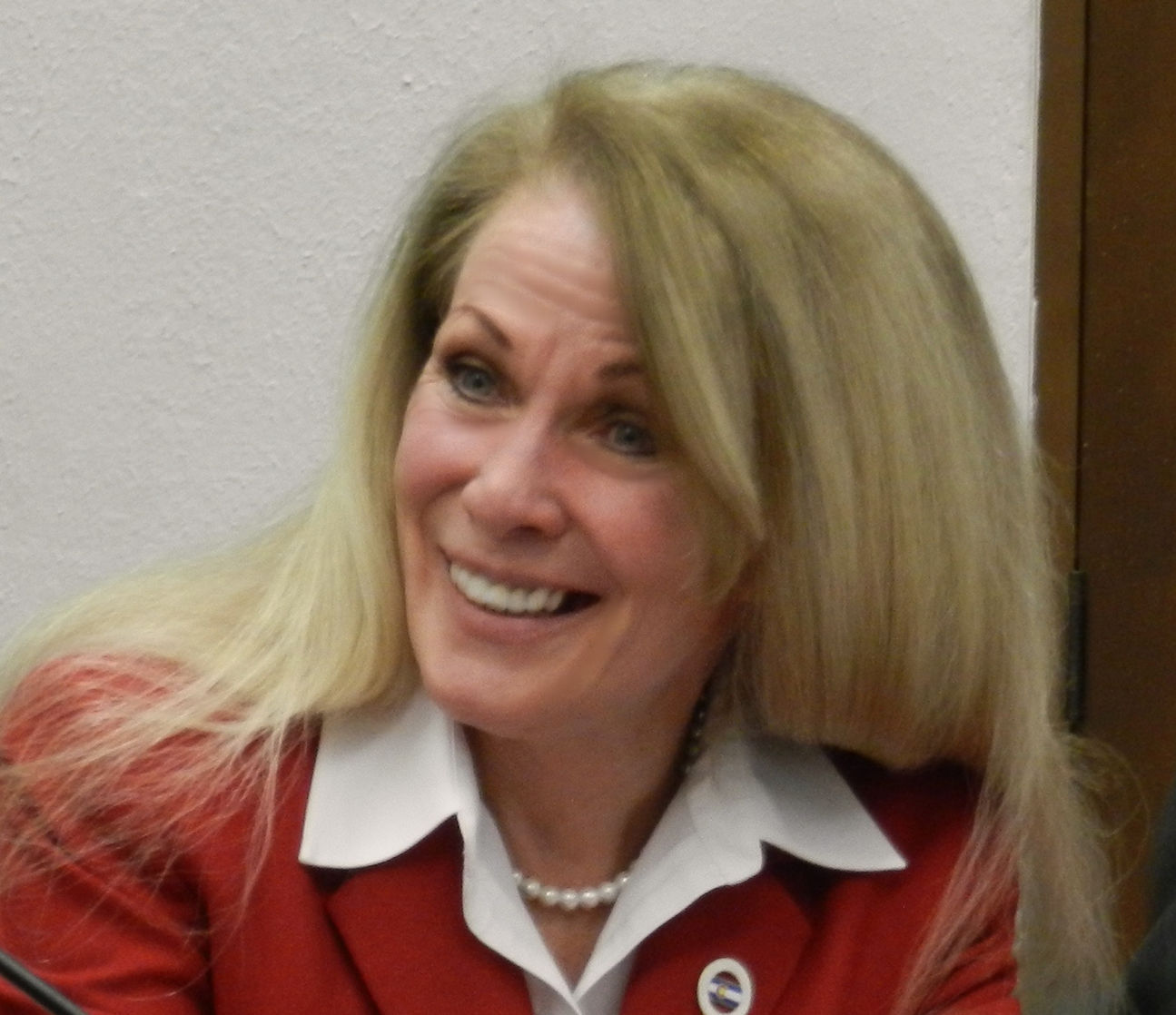
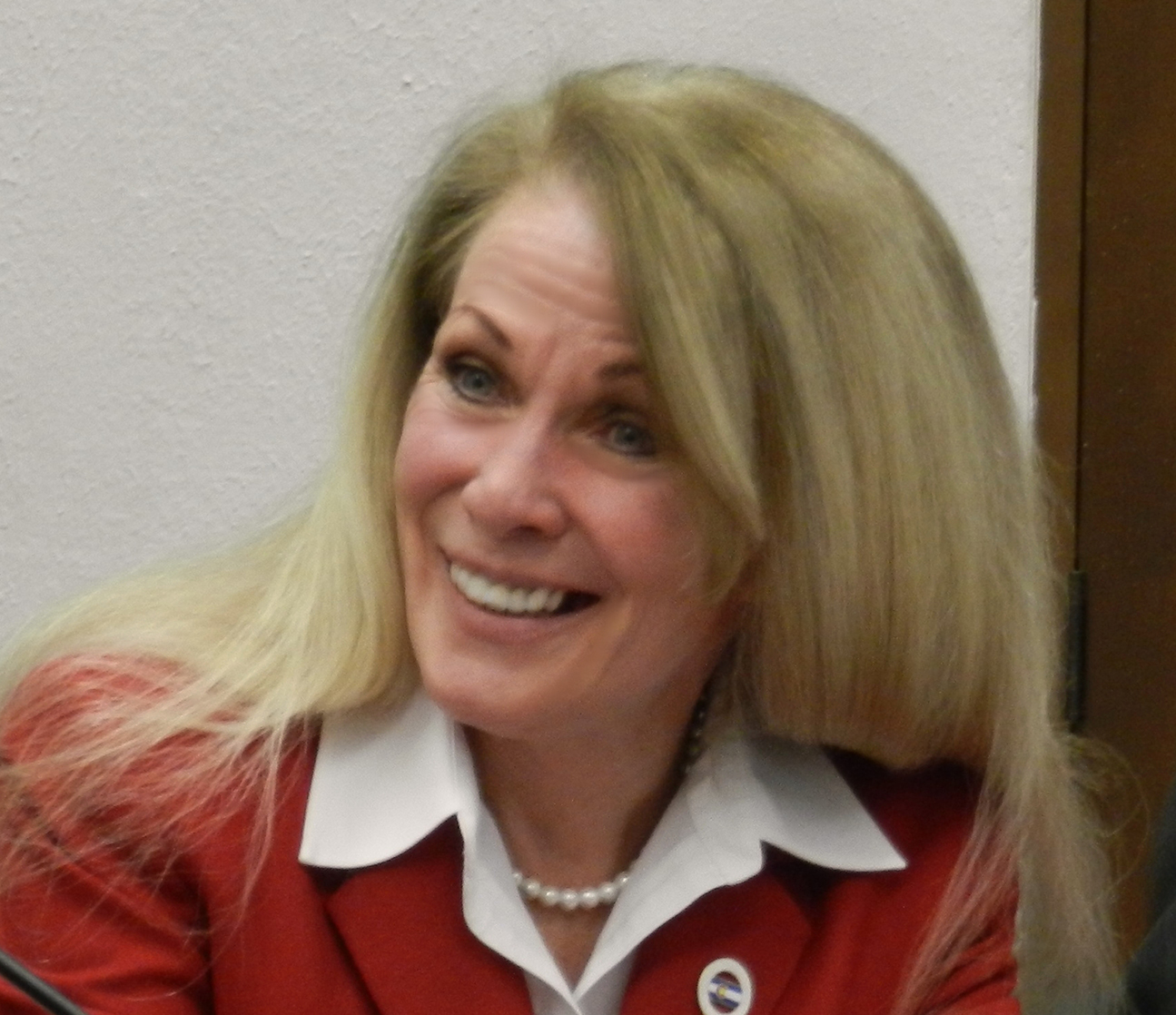
A lengthy hearing Monday to determine whether state Sen. Vicki Marble violated the state’s ethics law ended without a decision by the state ethics body.
The Colorado Independent Ethics Commission took testimony through almost seven hours from witnesses to a Feb. 15 event in Broomfield that featured an oil and gas company’s plan to residents.
Marble, a Fort Collins Republican, is accused of accepting a gift that exceeds the state limit. The alleged gift came in the form of payment for the Feb. 15 meeting, held at CB & Potts in Broomfield.
The event’s invitation didn’t mention that Extraction Oil and Gas paid for the event. It said the meeting was a chance for constituents in Broomfield to join Marble for a “presentation of facts on proposed oil and gas development” and “how other communities have addressed these important issues.” Broomfield is in the far southern portion of Marble’s senate district.
One of the main questions raised in Monday’s hearing was just whose event it was. Complainant Sarah Hall Mann of Broomfield pointed out the invitation only mentioned Marble, She believed the event would be a chance for constituents to meet with their state senator. “Any action going forward would require the senator’s help,” she said. Brian Cain, now a public relations employee of Extraction, testified that it was Extraction’s event.
The event’s genesis appeared to be a Feb. 1 meeting in Marble’s office at the state Capitol, attended by Marble, her legislative aid, Sheryl Fernandez, two people associated with Extraction, and two members of the Broomfield City Council. Marble and Cain both testified that it was Marble who suggested a meeting that would feature elected officials from Windsor who had a successful resolution to their oil and gas development issues. The meeting would be an opportunity to share that information with Broomfield residents. That turned into the CB & Potts, event, which was organized by Extraction with help from Fernandez, who suggested the venue, designed the invitation, developed the agenda and sent out the invitations.
The Broomfield City Council was expected later that month to vote on a proposed moratorium on oil and gas development, according to a recap of the Feb. 1 meeting detailed in a Feb. 7 letter Marble sent to the participants. Extraction sought approval from the city council for 84 new wells, to be located near two Broomfield neighborhoods. The council rejected the moratorium on Feb. 28 and approved Extraction’s plan in October. A month later, Broomfield voters approved a ballot measure to grant elected officials more oversight over oil and gas development. The vote does not impact the Extraction plan.
Fernandez testified that she worked with Cain on some of the event’s logistics, and even asked him in an email how much the company planned to spend for the event. But she said she never got an answer, and never asked how much the event would cost, nor did Marble.
The state’s limit on gifts to lawmakers was set by Amendment 41 at $50; it is adjusted periodically for inflation and is now at $59. The cost of the event, according to an invoice paid by Cain, was $1,121.18, for food and drink for approximately 70 people plus a room charge. Cain paid the invoice with a corporate credit card issued by his then-employer, Hill & Knowlton, and expensed back to Extraction.
Also at issue was whether the event constituted a town hall. Mann said it did, as she expected an opportunity to ask her state senator questions about oil and gas development, an issue she said is a matter of statewide concern. Marble also admitted that opponents of the Extraction plan had asked her to carry statewide legislation banning fracking, which she wasn’t about to do, given the importance of oil and gas activity in other parts of her district, most notably Weld County. But the Feb. 15 event was decidedly one-sided. “It was very pro-industry,” Mann said, and it was never revealed before or after the event that Extraction was its real sponsor.
Marble moderated the Feb. 15 event, a last-minute decision by Fernandez, and took questions from the audience. But she was never part of the presentation, she told the commission, and never discussed pending or past legislation, which she said is a key feature of legislative town halls.
Fernandez did refer to the event as a town hall in at least one email exchange with Cain. Mann also pointed out that the Broomfield GOP had sent out an invitation to the event in which it was referred to as a town hall. Fernandez is chair of the Broomfield GOP. She also said she used a contact list from her private public relations business to send out invitations.
The biggest question for commissioners to resolve is just who is at fault. Marble’s attorney, Marcy Glenn, asked commissioners to distinguish between Fernandez’ action and Marble’s. “The only evidence of Marble’s involvement in the event” was the Feb. 1 meeting in her office, in which “she asked a question on whether the parties had reached out to solicit views of other communities and players dealing with the same issue.” Glenn noted that Fernandez had shown Marble the invitation and that Marble had okayed it. Marble had no problem with being identified as the event’s host, but the event would have taken place even if she hadn’t been there, Glenn said. Marble’s name being attached to the event was merely to draw more attendance. Marble also testified that she had been asked to contact the Windsor mayor and others who could attend as speakers, but said she never heard from the mayor and didn’t follow up on other possible speakers.
Glenn also alleged to the commission that Fernandez, whom she called “precocious,” might have had an interest in seeing the event go forward as chair of the Broomfield GOP. What matters is what Marble was thinking and how she understood the event, Glenn said. “She’s the person on trial here.”
It’s not only a matter of whether Fernandez acted more or less on her own. A finding that Marble violated the state’s ethics laws is a misdemeanor. Glenn argued the commission must find Marble violated both the constitutional and statutory ethics laws “beyond a reasonable doubt,” since the violation is a criminal offense. She also argued the commission lacks a clear standard for determining violations of the statutory law on ethics.
Testimony throughout the hearing pointed out that Fernandez operated Marble’s personal email account and communicated with Cain on the event through that account, which Fernandez later testified was probably not a good idea. Marble testified that she relied heavily on Fernandez to take care of administrative business, and that she wasn’t always in a position to know what emails Fernandez sent to others on her behalf.
The hearing at times grew testy. Leone at one point challenged Cain on an assertion that the Feb. 1 meeting had little purpose. “There had to be a reason why you went to see Sen. Marble,” Leone said. “I can’t read any other way than that the senator was trying to broker a deal” between the city of Broomfield and the oil and gas industry. “Everyone’s denying there was any good reason for this meeting!”
One last issue is whether Marble benefited from the event. Both she and Cain testified that she received no financial benefit: no payment from Extraction, not even in the form of campaign contributions.
But that argument appeared to hold little sway with Leone, who said his concern is that legislators receive financial support for a political agenda from a private company.
“This is not an unsolicited event,” Leone said. “There’s too much evidence of involvement from the senator’s office,” and too much use of “we” and “us” in communications between the senator’s office and Extraction. “I don’t accept that there’s no legislative agenda here” and that the event was only a matter of personal interest by Marble, Leone said.
Marble pointed out the difficulties when lawmakers allow their names to be attached to events. “Legislators moderate a lot of events” and now want to know if they should be asking who pays, she said. “All of a sudden, because it’s oil and gas, it’s hair on fire.”
Fernandez has been an aide at the Capitol since 2009 but will not be back for the 2018 session. She said she doesn’t “enjoy these kinds of things” and would devote her time to her private business.
The commission is expected to rule on whether Marble violated the law at its Feb. 12 meeting.




